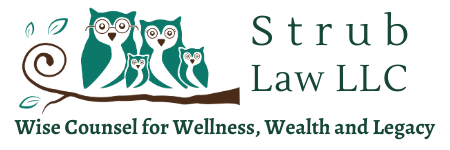Spring has officially sprung and that means it’s spring cleaning time. Shake out the rugs, clean out the cupboards, and get your legal and financial affairs in order.
For plenty of folks, it’s easy to know what to do when it comes to home organization, but the idea of legal and financial ordering can be complex and confusing.
This article will give you a few places to start:
- Review Your Beneficiary Designations
Request updated beneficiary designation forms from your life insurance account and retirement account custodians. Look at the form and identify whether you have a minor designated as either a primary or contingent beneficiary. If you do, those assets will have to go through probate and it may be difficult for the people you’ve name to care for your children to access those assets.
At 12 years old, one of my estate planning professors (her father having died without a good plan) had to go to court and explain to a judge why she wanted to spend money on two dresses for her Bat Mitzvah (one for the ceremony; one for the party). This was traumatic for her – do you want to put your kids in that sort of position?
Consider designating your life insurance and retirement accounts to be distributed to a trust for the benefit of your heirs, bypassing the need for court supervision, providing creditor protection, and ensuring your children do not inherit money before they are properly prepared.
- Update Your Family Wealth Inventory
Your Family Wealth Inventory is where we document the assets that you own, so that in the event you become incapacitated or when you die, your family will know how to find what you own.
Without an updated Family Wealth Inventory, your assets could be lost to the state department of unclaimed property. There’s currently $4.5 billion of assets in our state department of unclaimed property because most people do not leave a clear record of their assets at the time of their incapacity or death.
- Consider If You Need to Name New Guardians (Long or Short-Term)
Review your guardian nomination designations. Have you named guardians for both the short-term (local) and the long-term (people you would trust to raise your kids fully)? If so, do they need to change? Is there anyone you would wish to exclude? Does the ID card for your wallet need to be updated? This is the time to check.
- Check Out the Title to Your House
Get a copy of the deed to your house and make sure that it is titled in accordance with your estate plan. If you have created a revocable living trust, most likely your trust should be listed as the owner on the deed, so that your trust says what happens to your house in the event of your incapacity or death. If you see your personal name on the deed, and there is not a trust listed, your house will be part of the assets having to go through the court process of probate in the event of your death. If you don’t want that, now is the perfect time to spruce up your planning.
- Come In and Meet With Us For a Family Wealth Planning Session
Last, but far from least, this is the perfect time of year to come in and meet with us for a Family Legacy Planning Session, whether you’ve done planning in the past or not. We will have a 2-hour working meeting that will get you more financially organized than you’ve likely ever been before and give you the confidence of knowing you’ve made the most empowered, informed and educated legal and financial decisions for the people you love. We don’t just draft documents, we help you make the best legal and financial choices for your personal circumstances.
You can begin by calling our office today to schedule a Family Wealth Planning Session and mention this article to find out how to get this $750 session at no charge.
